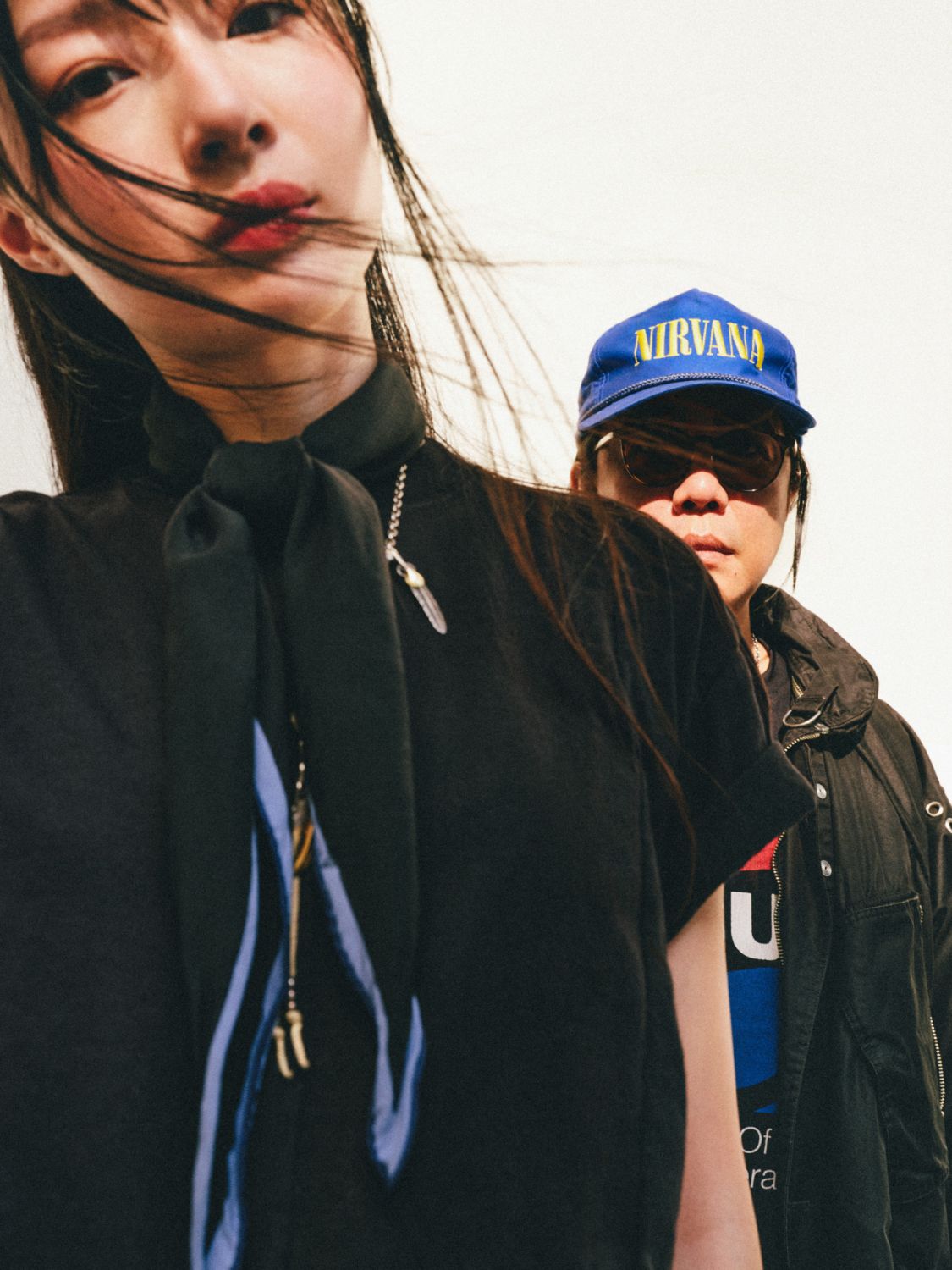Streetwear pioneer Earn Chen and fashion designer Nicolette Yip of The Salvages on creating fashion that stands the test of time. The secret? A punk rock attitude, and flirting with the past
From ever-changing trends to the barrage of style content on social media platforms, fashion can be a fickle beast. But Singapore-based fashion label The Salvages has done what many brands can only hope to do, which is to remain relevant and respected in an ever-evolving industry. According to its co-founders, Earn Chen and Nicolette Yip, it all comes down to knowing who you are, who you want to connect with, and having something to say—“Not just making noise,” says Yip.
“Fashion is a cycle. What goes up has to come down, and we’re more focused on a slow growth,” says Chen. “To us, that’s more meaningful and sustainable. We don’t have to constantly be in a rat race, or be the most famous brand. We just do authentic things and our tribe will find us.”
Yip elaborates: “It’s great to keep your eyes open to what’s around you but you also have to put on your blinders and focus on your story, your journey. It’s good to have a clear vision of your work, but also necessary to understand that it’s a constantly evolving process. I liken it to building and envisioning a character’s personality. How will this character grow and change over a lifetime, but still have its core values and habits? It’s about learning to adapt for the right reasons and remembering those principles.”


When I ask her to describe The Salvages as a character, Yip does so without missing a beat. “I see [this character] as androgynous … a non-gender person that loves music, that’s edgy and opinionated. It’s neither young nor old, but always young at heart. It has lots of spirit and is very bold,” she says.
“And also very romantic,” Chen chimes in.
Over the last six years, The Salvages has evolved from producing simple logo tees to becoming an intimate peek into the design mind of its founders—be it odes to icons of punk rock, to lessons in art history. In late 2020, the brand produced a line of T-shirts featuring photographs taken by Mary Ellen Mark, who was known for documenting individuals and subcultures that exist on the fringes of society—not dissimilar to the kind of ragtag cool kids that have become The Salvages’ “tribe”.
This spring saw the introduction of a capsule collection, Dressing for Pleasure, featuring artwork by John Willie, a British artist and fetish photographer who rose to prominence in 1950s. “He was actually born in Singapore,” Yip tells me. When we meet, she’s wearing a piece from the collection—a black tee with a neon yellow graphic of thigh-high, corset-laced boots.
Chen is wearing one of their older pieces, dubbed the Space Rock tee, emblazoned with a retro sci-fi graphic. “I like things to be well used and worn in, whether it’s jeans, a leather jacket, or T-shirts to the point where the ink is starting to break,” he says. “I tend to wear items like that. I’ll wash it, wear it to sleep, wear it out. It gives it more character.”

